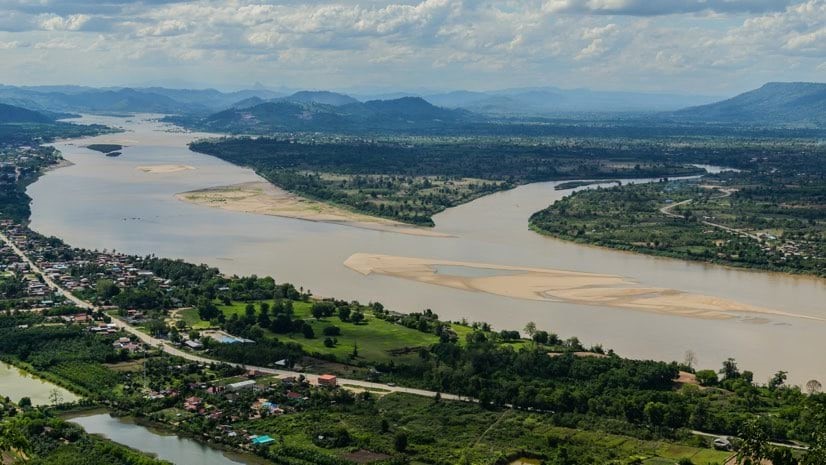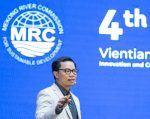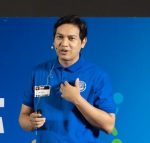
Abstract
The Mekong is one of the world’s greatest rivers. It drives development and supports the livelihoods of more than 70 million people – directly and indirectly – from its source in China and then as it snakes its way through Myanmar, Laos, Thailand, Cambodia, and Vietnam to the sea. Over the last decade, the Mekong – Southeast Asia’s largest river – has experienced rapid development while fighting climate change that is affecting us all who live in the region. Its enduring role as a source of life and livelihood has also come under increasing threats. In recent years, for some, the Mekong region has become a competition or even a battlefield among superpowers. Many even compare it with the South China Sea.
The lecture will explore past, present, and future developments in the Mekong region, including transboundary water development and management, from the perspectives of political geography and geopolitics, especially in the midst of US-China relations.
The second lecture will engage the audience in a journey of the cutting-edge technological advancements spearheaded by the Mekong River Commission(MRC), which aims at revolutionizing the way critical information is shared: the MRC Mobile App. By promoting data transparency and fostering trust, the MRC Mobile App represents a pivotal step forward in ensuring stakeholders are well-informed and actively involved in the stewardship of this vital region.
Date
Friday, 12 July 2024, 10:00-12:00
Venue
Daiwa House Nobuo Ishibashi Memorial Hall, Daiwa Ubiquitous Computing Research Building, Hongo Campus (ACCESS)
Registration
Needed. Please register from the link below.
Registration deadline: Noon of Thursday, 11 July
Host
Science Technology and Public Policy (SciTePP) Research Unit
Program
| Time | Program | Speaker |
| 10:00 | Opening remarks | Prof. Jun Arima, Project Professor, GraSPP UTokyo |
| 10:10 |
Keynote Speech “Superpower Rivalry and the Future of the Mekong” |
Dr. Anoulak Kittikhou, Chief Executive Officer, Mekong River Commission (MRC) |
| 10:40 |
Presentation “Future of the Mekong River Commission: Data, technology? What else?” |
Mr. Santi Baran, Chief Strategy and Partnership Officer, MRC |
| 11:10 | Comment |
Prof. Kensuke Yamaguchi, Project Assistant Professor, GraSPP
|
| 11:20 | Q&A | |
| 12:00 | Closing |
Speakers

Dr. Anoulak Kittikhoun is the Chief Executive Officer (CEO) of the Mekong River Commission (MRC) Secretariat. He was unanimously selected by the MRC Joint Committee and appointed to the office on 17 January 2022 by the MRC Council of Ministers, representing the governments of the four MRC Member Countries of Cambodia, Lao PDR, Thailand and Viet Nam.
Dr. Anoulak leads the MRC Secretariat headquartered in Vientiane and its flood and drought management centre in Phnom Penh, to support the implementation of the Mekong Basin Development Strategy (BDS) 2021–2030 and MRC Strategic Plan (SP) 2021–2025.
Prior to his appointment as the CEO, Dr Anoulak led the MRC Secretariat’s Office of CEO as Chief Strategy and Partnership Officer from 2016.
Before the MRC, Dr. Anoulak was an international staff of the United Nations (UN) Secretariat in New York, including the Department of Political Affairs (UN-DPA) and the Department of Economic and Social Affairs (UN-DESA).

Mr. Santi Baran is the Chief Strategy and Partnership Officer of the Mekong River Commission (MRC) Secretariat. He oversees the organization’s strategic planning, monitoring and evaluation (M&E), communications, stakeholder engagement, and partnership development.
Prior to this role, Mr. Baran was a Planning, M&E Programme Officer, and an M&E Specialist with the MRC Secretariat. Working for the MRC over the past 12 years, he has led the formulation of the Results Chain and Indicator Framework for three MRC Strategic Plans: Strategic Plan 2011–2015, Strategic Plan 2016–2020, and Strategic Plan 2021–2025. He also leads the preparation of the MRC Annual Work Plans and Multiyear Work Plans to implement MRC Strategic Plans.
About SciTePP
Science Technology and Public Policy (SciTePP) Research Unit addresses the nexus between science and public policy. Specialists from various fields, such as political science, law, economics, and engineering, come together to examine and structure issues and contribute to the discussion on policy selection in society.
Inquiries to: SciTePP Research Unit secretariat
graspp_eventinfo””pp.u-tokyo.ac.jp
*Please replace “” with @.

